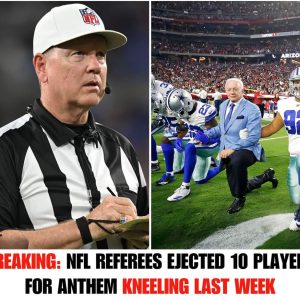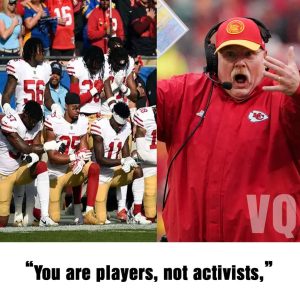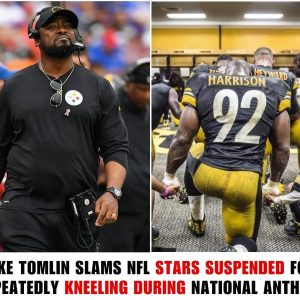The act of kneeling during the national anthem, popularized by former NFL quarterback Colin Kaepernick in 2016, has been a subject of intense debate and discussion. While some viewed it as a peaceful form of protest against racial inequality and police brutality, others believed it was disrespectful to the American flag and the values it represents. This divide often led to tensions within teams and among fans.
Coach Mike Tomlin, the head coach of the Pittsburgh Steelers, has been known for his commitment to fostering unity and a sense of purpose within his team. Throughout his coaching career, he has emphasized the importance of players working together towards a common goal. Coach Tomlin’s support for the anthem kneeling ban is aligned with his philosophy of maintaining focus on football and team cohesion.
Coach Mike McCarthy, who leads the Dallas Cowboys, is no stranger to the complexities of the anthem kneeling debate. The Cowboys, one of the league’s most prominent franchises, have seen their fair share of controversy surrounding this issue. Coach McCarthy’s endorsement of the ban signifies his desire to create a football-centric atmosphere within the team and to avoid distractions that detract from the game.
Coach John Elway, a legendary figure in NFL history as both a Hall of Fame quarterback and the General Manager and President of Football Operations for the Denver Broncos, understands the importance of maintaining a unified team culture. The Broncos’ decision to stand together reflects Coach Elway’s commitment to upholding the values and traditions associated with the sport.
The unanimous vote by NFL coaches is a significant step toward reshaping the conversation around anthem kneeling. It demonstrates that the coaching community, which plays a central role in shaping team dynamics and culture, is united in its desire to move past the controversy and focus on the essence of the game.
While some may interpret this decision as a restriction of athletes’ right to protest, others see it as a way to restore the primary focus of NFL games: providing high-quality football entertainment to fans. The coaches’ vote does not prevent players from advocating for social justice or addressing important issues; it simply changes the time and place for such expressions.
Critics argue that the ban may undermine the athletes’ ability to use their platform for social change. However, supporters of the decision contend that there are alternative avenues for athletes to engage in activism, both within and outside the confines of the football field.
The NFL has a long history of players and teams engaging in philanthropic efforts and community outreach to address pressing societal concerns. The ban on anthem kneeling is not intended to stifle these efforts but rather to redirect them in different ways.
The decision also highlights the power and influence of NFL coaches within the league. Coaches are instrumental in shaping team culture, dynamics, and strategies, and their unanimous vote sends a powerful message about the league’s direction.
As with any significant change, there are both proponents and opponents of the ban on anthem kneeling. The debate over this issue is far from over, and it will likely continue to be a topic of discussion among players, coaches, and fans.
Ultimately, the unanimous vote by NFL coaches to ban anthem kneeling represents a significant moment in the league’s history. It reflects a desire to shift the focus back to the game while acknowledging the ongoing challenges of addressing social justice concerns.
The NFL has the opportunity to chart a new course that allows athletes to advocate for change in meaningful ways, both on and off the field. Whether this decision will ultimately be viewed as a step forward or a step back remains to be seen, but it is undeniably a moment that will be remembered in the annals of the league’s history.





